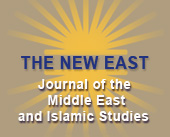Palestinian Dream and Women's Dreams: A Journey
into the Realms of Imagination in the Works
of the Writer Dimah Jum'ah al-Samman
Dorit Gottesfeld
Studies addressing the works of Jerusalem-born Dimah Jum'ah al-Samman tend to focus on their historical-political aspects while ignoring their stylistic aspects and the messages they convey regarding women. The present paper fills this gap and highlights these aspects through an examination of the novel al-Asabi' al-khafiyya ("Hidden Fingers," 1992), which describes a woman living in a patriarchal society and emphasizes her presence.
In an interesting and original way, the fantasy style helps to emphasize the qualities of moral strength and persistence of the fictional princess character that it creates. Thus the princess becomes a kind of model of the ideal woman, conveying messages to women about challenging their reality and rebelling against their present situation.
The novel's fantasy style also serves to formulate political-national messages. It presents a fictional description of clans whose way of life creates a model of national independence. The novel repeatedly emphasizes that one should learn from these ideas of national independence, but apply them only within the boundaries of the homeland itself, without wandering to distant lands.
The novel also presents the characters of fictional heroines who, together with their struggle for women's independence, also struggle to preserve the national independence of their clans-people. The message which emerges is that women are the nation's hope in political respects too, and that national and women's progress can be intertwined.

